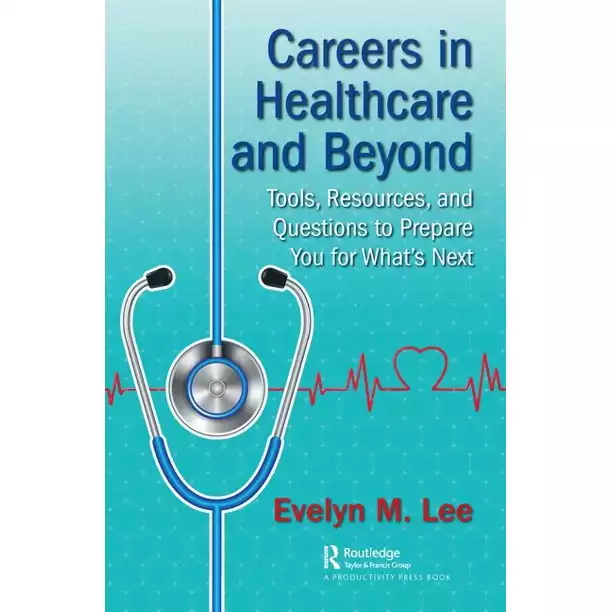We may receive compensation when you click on links to products from our partners.
For most people, doctors may seem to have only one job to do: heal patients. While this might be true for most trained physicians, this isn’t true for each and every one of them.
In fact, there’s more than one way to find work as a doctor. Here are some of the most notable alternative career tracks in the field of medicine.
Alternative Careers
- Medical Journalism – Doctors with a flair for writing can pursue a career in medical journalism. This role involves writing articles, papers, or editorials that bridge the gap between the medical community and the general public.
- Healthcare Consulting – Healthcare consultants work with organizations to improve their medical services. With a background in medicine, doctors are well-equipped to offer valuable insights into healthcare efficiency and quality.
- Medical Education – Doctors can transition into academia, where they can teach future medical professionals. Roles may include lecturing, curriculum development, and research.
- Telemedicine – Telemedicine allows doctors to consult patients remotely. This is an increasingly popular field, especially in rural areas where healthcare is less accessible.
- Pharmaceuticals – Doctors can work in pharmaceutical companies, involved in drug development, research, or regulatory affairs. Their medical background can provide unique perspectives.
- Public Health – Public health roles enable doctors to work on healthcare policy, epidemiology, or community health. They may work for governmental organizations or NGOs.
- Healthcare Administration – Doctors can move into managerial roles within a healthcare facility. They can apply their medical knowledge to improve hospital operations and patient care.
- Biotechnology – Doctors with an interest in research and development can transition into the biotech sector. They can work on innovations like medical devices or gene therapy.
- Medical Writing – Medical writing is an option for doctors who can translate complex medical data into easily digestible information for various audiences, including regulatory bodies and patients.
- Legal Medicine – Doctors can work as medical examiners or consultants in legal cases. Their expertise can assist in malpractice suits,
insurance claims, and other legal matters related to healthcare.
Hospital Administration: For the Business-Oriented
Hospitals are complex workplaces that employ people who specialize in various disciplines. This is why it’s important to have hospital administrators keep everything running smoothly.
As an administrator, you’ll be in charge of the day-to-day operations of a hospital. This includes overseeing clinical units, individual departments, or even entire hospitals. Though you won’t be having much of direct interaction with patients, your decisions will have a huge impact on how your hospital staff treats patients.
Being a trained doctor, you can best assign the right people, allocate resources, and set goals for your departments. You can do this as a generalist who can concentrate on managing an entire facility or as a specialist who can concentrate on specific departments.
Clinical Research: For Improving Medicine
If you were to choose the path of a researcher, you would have the opportunity to apply your skills and knowledge for the benefit of medical science. After all, humans’ increased life span and improved quality of life can be credited to amazing medical advances over the past century.
You can think of medical research as a continuation of your time in medical school. But your work will now have a greater impact on how medicine may be practiced in the future. Your time as a researcher might even result in the development of new treatments, procedures, and medications.
For most people, doctors may seem to have only one job to do: heal patients. While this might be true for most trained physicians, this isn’t true for each and every one of them. Click To TweetClinical research is usually done in academic medical institutions and affiliated research study sites. If you were to choose this path, you wouldn’t just be contributing to medical science. You’ll also be able to provide your medical institution with extra prestige.
Teaching Medicine: For Helping the Next Generation
Lastly, you can choose to pass on your skills and knowledge to the next generation of physicians. As a medical educator, you’ll be adapting your training as a physician to help create an ideal environment for active and direct learning of healthcare techniques.
But there’s more to this job than feeling personal satisfaction from being an effective instructor. indeed, dedicated and passionate teachers are seen as undeniable assets to any institution’s medical department. They are also often seen as mentors in their attached departments.
Generally, these openings are available at teaching hospitals or hospitals that are partnered with well-known medical colleges. Aside from helping aspiring doctors develop, you’ll find this job will also help you better hone your own skills as a physician.
No matter what medical career path you choose to take, your work will still have benefits for plenty of patients. The difference lies in the scale of your impact, and how directly your efforts will affect them.




